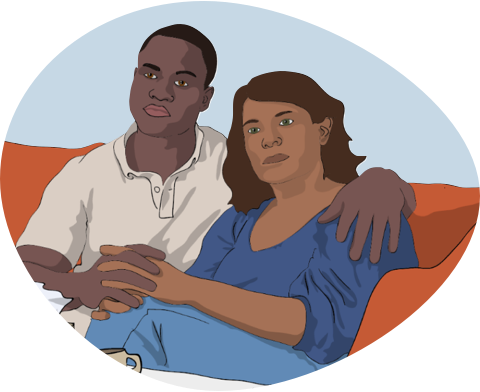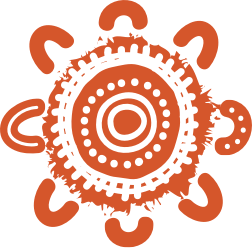- Home
- Cancer in our Mob
- Why did I get cancer?
- Family history

Family history and cancer
Our mob thrive through knowledge of our family and kin, connection to Country, culture and community. Family and kinship are complex and dynamic and include people in our bloodlines and those who are not. They help us define where we belong and how we fit into family and community.
When we talk about cancer in families or a “family history of cancer”, we are referring to those people in a family or kinship who share the same bloodlines. Many of us have someone in our bloodlines who has had cancer. Some families have more than one person who has had cancer.
This could mean that there might be a family history of cancer that comes through the bloodlines. Having a family history of cancer usually means that there is more than one relative within the same bloodlines of the family who has had cancer. It will be connected to your mother's side (matrilineal) or their father's side (patrilineal).
On the other hand, cancer is a common condition and it is not unusual for more than one family member to develop cancer during their lifetime, just by chance or because of their lifestyle or environment.
Only a small percentage of all cancers run in family bloodlines, but if you do have a family history of cancer, it’s important to find out.
How does family affect cancer risk?
There are a few reasons why cancers run in family bloodlines.
It might be because there is a problem in the body – in a gene – and this can affect the chances of getting cancer if your share the same bloodline. Family members might have that same gene. Genes are passed on to us before we are born.
Family members might have some of the same risk factor for cancer, for example, smoking, being overweight and drinking too much alcohol.
Cancer can also just be something that happens to people in the same family, but we don’t know why.
What to look for
There are some signs that there might be more cancer in the family bloodline:
- if you have three or more people in your bloodline with cancer
- some of them got cancer when they were young, say, under 50
- if there are certain types of cancer – such as breast cancer, ovarian cancer, bowel cancer, uterus (womb) or endometrial cancer or prostate cancer, or melanoma.
- Faulty genes can cause cancers in more than one part of the body, and these can happen commonly in the breast, ovary, bowel or uterus (womb).

What to do if there is family history of cancer
If you think cancer might run in your family bloodline, talk to your doctor, nurse or Aboriginal and/or Torres Strait Islander health worker.
Ask them about having health checks. They might think advice about genes is needed, and maybe tests. There are genetic counsellors and Family Cancer Clinics.
Having regular health checks is always a deadly choice for all family and kin.
People with a family history of cancer might like to share this information with other members within their bloodline. The more we as family members know about cancer, the more we might be able to prevent it or find it early. The more we understand, the easier it can be to go through a cancer journey.
Life with and after cancer
FIND OUT MORE
Where can I get help and support?
FIND OUT MORE



